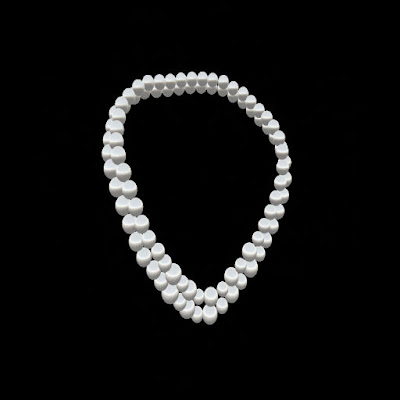Taboo: unacceptable or improper for society, to exclude from practice. There are many types of taboos. Taboos about death. Taboos about sex. Taboos about rebelling about against authority. Even taboos about taboos.
Petronius’ anecdote of the “Widow of Ephesus” (Chapters 110-112) in his longer novel The Satyricon attempts to prove the frailty of women through a series of outrageous events which accost the taboos of virtuous Romans. The widow metamorphosizes from a virtuous creature wailing at her recently deceased husband’s tomb (spiritual), into a lustful creature of carnal appetites (hedonist), and finally into a savior whose present desires outweigh those of social propriety (realist). Petronius’ intent was to humorously show lower class Roman society, and satirize their fickle nature toward more serious subjects.
Having read and discussed the anecdote, what are your thoughts on taboos? Does society need them? How do taboos about the dead help society? What insights about Roman culture can we glean from this surviving novel, only one of two complete novels of the time period?
Tuesday, December 16, 2008
Life's Little Ironies
 Maupassant was a meticulous writer who wrote mostly about the common everyday experiences of people. His talent was in creating a “real” world on the page and addressing problems which arose in the common course of daily life. His stories often compared social classes, a common theme for writers of his time. They juxtaposed the lives of bureaucrats with those of the peasant classes to show the complexity of social life in Paris in the mid to late nineteenth century.
Maupassant was a meticulous writer who wrote mostly about the common everyday experiences of people. His talent was in creating a “real” world on the page and addressing problems which arose in the common course of daily life. His stories often compared social classes, a common theme for writers of his time. They juxtaposed the lives of bureaucrats with those of the peasant classes to show the complexity of social life in Paris in the mid to late nineteenth century.Because he focused on social juxtaposition of the classes, most of Maupassant’s short stories are laden with ironies. These ironies are often the direct result of a fatal flaw, as in “The Necklace” we see Mrs. Loisel affected by her desire to appear more respectable which is a direct result of her vanity. This short story is littered with judgments about women: their role in society and the expectations placed upon them both socially, morally, and personally. Find some examples in the text where Maupassant is passing judgment on women. Look for examples from all the female characters. Then choose one you feel strongly about and comment on how that judgment functions in the text. Is it an example of a common everyday experience? Is it a common social convention of the time? Does it reinforce the irony? Would Maupassant’s view be accepted in today’s world?
Paranoia and the Body

Bob Bolin, in his piece from Skirting the Interface: Surface Anxiety and Gender in Cyberpunk, uses Gibson’s Burning Chrome as a vehicle to describe the overwhelming detachment of humanity in the information society. He successfully defines gender roles as presented by Gibson as being “self-referential” or “a cultural construct validated (only) by the events of the story” and contrasts that newly evolving cultural idea with the old world of “corporeal existence.”
So, what he is saying is that our reality is no longer defined by our bodies. Our use of machines to communicate through time and over longer distances changes our perceptions of reality and therefore our perceptions of self. The computer world is becoming more visceral and lively than our everyday life. And, we no longer need a physical body to exist in this world dominated by information. This destruction of the self is seen by many as obscene. How can we exist without bodies? We begin to question our “selves” and this heightens our ever increasing sense of paranoia about our ability to control our surroundings.
Bolin asks “does this flood of the obscene (in stories like Burning Chrome) terrify because of its proximity, or is it the suggestion that since man cannot figure himself in his culture, and cannot keep himself separate from what has been previously proscribed, he can no longer find a comfortable place in his culture?” Are our current customs and cultures then obsolete because they are based on “meat” rather than “information”? Can humanity exist without corporeal existence?
So, what he is saying is that our reality is no longer defined by our bodies. Our use of machines to communicate through time and over longer distances changes our perceptions of reality and therefore our perceptions of self. The computer world is becoming more visceral and lively than our everyday life. And, we no longer need a physical body to exist in this world dominated by information. This destruction of the self is seen by many as obscene. How can we exist without bodies? We begin to question our “selves” and this heightens our ever increasing sense of paranoia about our ability to control our surroundings.
Bolin asks “does this flood of the obscene (in stories like Burning Chrome) terrify because of its proximity, or is it the suggestion that since man cannot figure himself in his culture, and cannot keep himself separate from what has been previously proscribed, he can no longer find a comfortable place in his culture?” Are our current customs and cultures then obsolete because they are based on “meat” rather than “information”? Can humanity exist without corporeal existence?
Wednesday, December 3, 2008
Practicing VOICE LESSONS

Read Karen Bernardo's commentary on Updike's "A & P" at this site: http://www.storybites.com/updikeaandp2.htm .
Notice how she interweaves the voice lessons of detail, diction, tone, and imagery into a single essay. Her examples connect Updike's stylistic choices to what she sees as his theme, "a contrast of worldviews: the conservative...against the free-spirited."
Post some examples of where you see Bernardo using the "voice lessons." What does she do successfully? Where do you disagree with her assumptions or evidence? What can you learn from her style writing to use in your own?
Tuesday, December 2, 2008
Joycean Symbolism

Harry Stone writes in his criticism “‘Araby’ and the Writings of James Joyce,” from the Antioch Review, that Joyce litters his writing "with a dense symbolism undergirding the story." His analysis of the short story "Araby" through what he calls the Symbolic Thread traces the symbols of blindness, the etymological history of the word "Araby," and the flourin. Another critic, Robert Robert's In "'Araby' and the Palpimset of Criticism" deconstructs the bicycle pump as "a symbol of the British commericial materialism which has corrupted Irish Catholicism."
If Stone and Roberts see symbols throughout the story, they must be there. What symbols do you see and what do they stand for?
If Stone and Roberts see symbols throughout the story, they must be there. What symbols do you see and what do they stand for?
Tuesday, November 25, 2008
Celebrity and the Red Carpet

Even though I agree with everyone that this piece has strong themes about society/class/family, I believe a deeper interpretation can be found elaborating on the concept of "celebrity." Sankaran's story disturbs me because she makes me think about celebrity, America, and my students in a new way.
Examples of celebrity litter the text. Beyond the obvious red carpet reference which Maydum refuses to acknowledge as part of who she is, there is Raju's naming his daughter after a Bollywood star, and the worshiping "peasants," from the kitchen to the grounds, who adore Maydum for what they perceive as her celebrity stature. The opulence in which she lives also promotes this concept. But beyond the list of evidence, Maydum reacts like a modern celebrity. She lives in a world protected from the forces which alter and change Raju. Therefore she can play her part and then just as quickly revert back to her Paris-Hilton-party-mode and forget Raju, his family, and their situation.
I fear this same commiditization of celebrity is happening to many of you. Your online profiles promote an atmosphere of celebrity to others, and even you status as seniors make you celebrities to underclassmen who see you as models for how to create themselves, just as Raju sees Maydum as a model for his daughter.
So what are your thoughts on the concept of celebrity? Do you agree with my analogy? Post your ideas here.
Tuesday, November 18, 2008
Secret to Not Getting Stuck

Every character in this story finds themselves "stuck" in some fashion. Del most of all, for the reader's view of the world is presented through his teenage perceptions.
Although the title comes the coach, Dan Gable, he says: "It's no secret. It's pride and faith and stubborness. That's all. You don't give in. No matter what, you keep going. You don't ever give up. That's it."; we as analytical readers know the meaning must go deeper than this simple statement.
So, what is the secret to not getting stuck? Is there one, or is Woodruff simply playing an ironic joke on his readers?
Readings
The following are the short stories selected for Boot Camp 08-09:
The Secret to Not Getting Stuck by Jay Woodruff
The Red Carpet by Lavanya Sankaran
Araby by James Joyce
A&P by John Updike
Burning Chrome by William Gibson
The Necklace by Guy de Maupaussant
Six Pieces of Severance by Robert Olen Butler
The Satyricon: Widow of Ephesus by Pertronius
The Curse by Andre Dubus III
Truth or Consequences by Alice Adams
The Secret to Not Getting Stuck by Jay Woodruff
The Red Carpet by Lavanya Sankaran
Araby by James Joyce
A&P by John Updike
Burning Chrome by William Gibson
The Necklace by Guy de Maupaussant
Six Pieces of Severance by Robert Olen Butler
The Satyricon: Widow of Ephesus by Pertronius
The Curse by Andre Dubus III
Truth or Consequences by Alice Adams
Initial Post

Short Story Boot Camp is an idea I stole during one of my AP Camp experiences at St. Johnsbury Academy. During a discussion on vertical integration of curricula (vertical teaming) a teacher explained their method for teaching literary analysis to students being "like a private at boot camp: dirty, smelly and exhausting." The image lingered weeks after AP Camp, and I began to formulate my current method of Literary Analysis Boot Camp.
First, we have the five voice lessons which give us a context for analysis: diction, details, imagery, syntax, and tone. Second, we have the four writing dimensions which give us a direction for solid analytical writing: purpose, organization, detail, and voice. Finally, we have the texts, a variety of pieces collected from magazines, anthologies, and short story collections. Put them all together and you get -- Short Story Boot Camp.
Over the course of the next four weeks you will actively read, discuss, analyze, and write on ten selected short stories. Each story is selected with a focus connected to one of the voice lessons. Every class you will spend half the time discussing (45min) and half the time writing (45 min.). All essays are timed and graded using the College Board's Advanced Placement Scoring Guide for English Literature.
The goal of Boot Camp is simple, but varied. Read. Discuss. Write. Critique. Each of your ten essays will be scored, and progress will be monitored over time to guide and foster growth. Get ready to become dirty, smelly and exhausted.
Subscribe to:
Comments (Atom)
